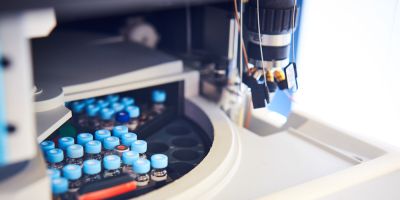Major EPSRC grant takes quantum dynamics into the COSMOS

A new £6 million grant will help scientists studying quantum dynamics to develop a universal software framework for simulations, helping them achieve a deeper understanding of the quantum world.
Professor Dmitry Shalashilin of the School of Chemistry is part of a new research project called Coherent States for Molecular Simulations – COSMOS – which has received £6 million in funding from the Engineering and Physical Sciences Research Council (EPSRC) to transform the way we understand, record, and share findings of cutting-edge studies.
Scientists use powerful sources of light to study tiny particles, atoms and molecules, that make up the matter around us – this is known as the quantum domain. These experiments can be used to answer important and emerging questions about how particles behave in material properties, chemical reactions, and new quantum technologies.
To understand the results of the experiments, computer simulations are crucial. The computer-generated virtual model shows how these tiny particles move according to the rules of quantum physics. Using newly developed quantum simulations, researchers will predict and understand what is happening to molecules during experiments.
This is a new field of research, and most research groups use their own custom-made software for their studies, but this often means it is difficult for scientists to use ideas from one group to improve the methods of another.
By creating this universal software, a wider group of scientists across the world can use computer simulations to explore the quantum world more efficiently, allowing researchers across a broad range of research areas to understand state-of-the art experiments and exploit quantum effects by designing new molecules and materials.
Professor Shalashilin said: “Modelling quantum systems on classical computers has always been a great challenge. Quantum computers are believed to be an answer in the future, but before they are developed fully, we still need efficient methods to look at quantum dynamics with the hardware we have available.
“I’m really excited about the possibility to develop further such algorithms, to apply them to real world problems, and to work on the interface of mathematics, physics and chemistry together with my friends and colleagues in Leeds and worldwide.”
Professor Shalashilin is joined by principal investigator Professor Graham Worth from University College London, plus co-investigators Professor Scott Habershon (University of Warwick), Dr Basile Curchod (University of Bristol), Professor Adam Kirrander (University of Oxford), and Professor Tom Penfold (Newcastle University).
Professor Worth said: “I am very excited to be heading this international team. The project will be a big challenge and I am looking forward to seeing how we can combine our knowledge and ideas to provide a step-change in the way we can describe, visualise and exploit quantum processes.”
Further information
- Full details of the EPSRC grant for “A Universal Approach for Solving Real-World Problems Using Quantum Dynamics: Coherent States for Molecular Simulations (COSMOS)”.
- For any media enquiries, please contact Matt Gardner, the Faculty Communications Manager for Engineering and Physical Sciences, via M.D.Gardner@leeds.ac.uk.




